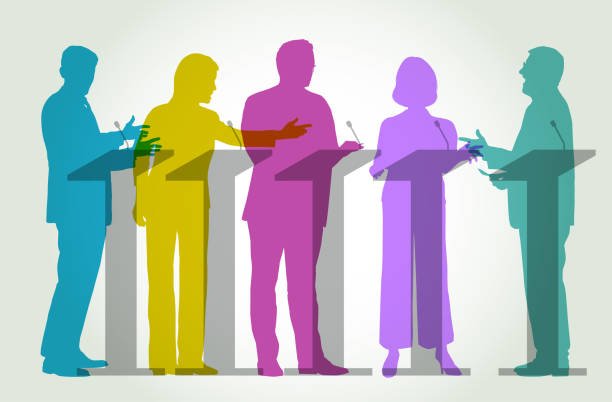What Is the Role of Un in International Relations?

The United Nations was founded in 1945 with the aim of maintaining international peace and security. It is the world’s largest international organization, with 193 member states. The UN has six main organs: the General Assembly, the Security Council, the Economic and Social Council, the Trusteeship Council, the International Court of Justice, and the Secretariat.
The General Assembly is the main decision-making body of the UN, made up of all 193 member states. The Security Council is responsible for maintaining international peace and security. The Economic and Social Council promotes sustainable development and coordinates international economic, social, cultural, and health programs. The Trusteeship Council oversees UN trust territories. The International Court of Justice is the UN’s judicial organ and settles legal disputes between member states. The Secretariat is the UN’s administrative body and supports the work of all other UN organs.
The UN also has a number of specialized agencies, such as UNESCO (the United Nations Educational, Scientific and Cultural Organization), which promote education, science, culture, and communication; UNHCR (the United Nations High Commissioner for Refugees), which protects refugees; WFP (the World Food Programme), which provides food assistance.
The United Nations And Its Predecessor, The League Of Nations
The United Nations is an international organization consisting of 193 member states. The UN was established in 1945 after World War II with the aim of maintaining world peace and security. The UN is the largest and most well-known international organization in the world.
The League of Nations was an international organization founded in 1919 after World War I. The League’s goals were to prevent future wars and promote international cooperation. However, the League was unable to prevent World War II from happening. After the war, the League of Nations was dissolved and replaced by the United Nations.
The Role Of The UN In International Relations
The United Nations is an international organization that was founded in 1945. The UN’s mission is to maintain international peace and security, develop friendly relations among nations, achieve international cooperation in solving international problems, and be a center for harmonizing the actions of nations.
The UN has six main organs: the General Assembly, the Security Council, the Economic and Social Council, the Trusteeship Council, the International Court of Justice, and the Secretariat. The General Assembly is made up of all member states of the UN, and it is responsible for discussing and deliberating on international issues.
The Security Council is responsible for maintaining international peace and security. The Economic and Social Council promotes economic and social development. The Trusteeship Council oversees trust territories. The International Court of Justice settles legal disputes between countries. The Secretariat carries out the day-to-day work of the UN.
The UN also has many specialized agencies that work on specific issues. These include the World Bank Group, the World Health Organization, UNESCO, and UNHCR.
The UN plays an important role in global politics by promoting dialogue and cooperation among countries. It also works to resolve conflict and promote human rights.
The Benefits And Criticisms Of The UN
The United Nations (UN) is an international organization that was founded in 1945. Its stated aims are to promote international peace and security, to promote human rights, and to provide a forum for solving international problems. The UN has six main organs: the General Assembly, the Security Council, the Economic and Social Council, the Secretariat, the International Court of Justice, and the United Nations Trusteeship Council.
The UN has been criticized for its ineffectiveness in promoting peace and security, human rights violations by member states, and its lack of democracy. Some have also criticized the UN for its costliness and bureaucracy. However, others argue that the UN is essential for promoting peace and security around the world.
The UN And Human Rights
The United Nations was founded in 1945 with the goal of maintaining international peace and security. Over the years, the UN has become increasingly involved in promoting and protecting human rights. The UN Charter obligates all member states to promote human rights and fundamental freedoms for all.
The UN General Assembly has adopted a number of important human rights treaties, including the Universal Declaration of Human Rights, which sets out the fundamental principles of human rights. The UN Security Council has also taken action to protect human rights in certain situations, such as adopting resolutions on conflict-related sexual violence.
The UN Human Rights Council is the main intergovernmental body responsible for promoting and protecting human rights around the world. The Council addresses a wide range of human rights issues and works to strengthen existing international human rights law.
The work of the UN in promoting and protecting human rights is carried out by a number of different bodies, including the Office of the High Commissioner for Human Rights, which is responsible for leading and coordinating the Organization’s work on human rights.
How The Un Has Changed Over Time?
Since its inception in 1945, the United Nations has undergone a number of changes in both its structure and its role in international relations. One of the most notable changes was the expansion of the Security Council from 11 to 15 members in 1965, which allowed for a greater diversity of views and perspectives on international security issues.
In recent years, the UN has also been increasingly involved in peacekeeping operations around the world. As of 2016, there were over 100,000 UN peacekeepers deployed to 16 different missions. The UN has also been active in promoting sustainable development and fighting climate change. In 2015, the UN launched the Sustainable Development Goals, a set of 17 goals that all member states are committed to achieving by 2030.
Conclusion
The United Nations plays an important role in international relations by promoting peace and security, protecting human rights, and providing humanitarian assistance. Member states work together to resolve disputes and maintain international order. The UN also provides a forum for discussion on global issues and facilitates cooperation on development projects. While the UN has been criticized for its bureaucracy and ineffectiveness, it remains an important player in the international community.








